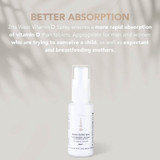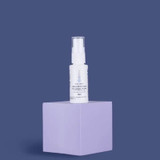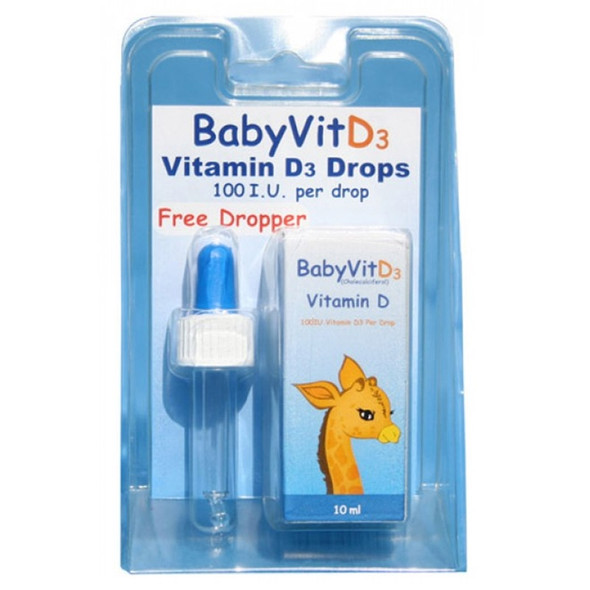Vitamin D plays a vital role in reproductive health, benefiting both men and women trying to conceive and women during pregnancy. Deficiency in this vitamin is common among the UK population, and the NHS recommends a daily supplement of 400 IU. Vitamin D is primarily obtained from sunlight and a limited range of foods. Our new one-a-day booster formulation is a convenient spray that is applied directly onto the tongue, providing additional support for your essential intake of this crucial micronutrient.
Top Features:
- 3 months supply
- Easy-to-use spray
- 1000iu (25ug) per spray
How to use:
- One spray under the toungue or inner cheek per day
Blogs:
Frequently Asked Questions
What role does Vitamin D play in reproductive health?
Vitamin D is crucial for both male and female reproductive health. In women, it influences ovarian function, enhances egg quality, and supports hormonal balance. In men, adequate Vitamin D levels are associated with improved sperm quality and motility.
How does Vitamin D deficiency affect fertility?
Vitamin D deficiency has been linked to various fertility challenges, including polycystic ovary syndrome (PCOS), endometriosis, and reduced success rates in fertility treatments like IVF. Ensuring sufficient Vitamin D levels may improve fertility outcomes.
Why is Vitamin D important during pregnancy?
During pregnancy, Vitamin D supports fetal bone development, modulates the immune system, and reduces the risk of complications such as preeclampsia and gestational diabetes. Maintaining adequate levels is essential for both maternal and fetal health.
How can I increase my Vitamin D levels?
To boost Vitamin D levels, consider regular sun exposure, consuming Vitamin D-rich foods like fatty fish and fortified dairy products, and taking supplements if necessary. It's advisable to consult a healthcare provider to determine the appropriate dosage.
What is the recommended daily intake of Vitamin D for adults?
The recommended daily allowance (RDA) for Vitamin D varies by age and life stage. For adults aged 19-50 years, the RDA is 15 mcg (600 IU). However, individual needs may vary, so it's best to consult with a healthcare provider.


















